Nursing Assistant – Health Careers Basic Nursing Overview
With CNA Nursing Prep you will know when you are ready to schedule and take your State exam. The online course includes a cumulative final examination. When you are consistently scoring a 90 or higher on the course final, you will have the knowledge and confidence necessary to successfully pass the State exam. If you do not pass the State exam, there is a money-back guarantee.
Course Description: The first half of this course introduces students to the field of healthcare. This course introduces students to concepts that focus on facilitating basic healthcare skills to meet the needs of patients in various healthcare environments. Trends, health acts, and guidelines are also considered. Infection control information and skills; body mechanics; and communication with the healthcare team are presented as part of this course.
The second half of the course introduces students to concepts that focus on providing basic nursing skills to meet the needs of patients in various healthcare environments. The course covers the essential information and procedures that Nursing Assistants need to know and are required to be able to do in the nursing healthcare setting. The physiological, psychosocial, socio-cultural, and spiritual needs of patients in various healthcare environments are examined. Acute care, long term care, assisted living, and death and dying are presented as part of this course.
Required Materials:
Dugan, Diana. Nursing Assisting: A Foundation In Care Giving, 4th Ed. Hartmann Publishing.
Workbook for Nursing Assisting: A Foundation In Care Giving, 4th Ed. Hartmann Publishing.
Detailed Course Objectives:
- Define the structure and function of the various types of healthcare agencies.
– The students’ primary focus will be on long term care and home health care - Explain the ethics and laws in healthcare as they relate to the various practices and professions in the industry.
– Maintain the rules and professional boundaries
– Focus on ethics and laws: Torts, documentation and reporting
– Focus on long term care and home care: Vulnerable adults –Self neglect –Domestic abuse - Summarize ethical behavior as it pertains to the field of healthcare.
– Focus on team work and time management
– Explain the healthcare workers accountability for patient, processes, and position
– Discuss attendance, communications, confidentiality, and sexual harassment
– Understand that employee drug testing is mandatory - Articulate the importance of the healthcare worker as a good communicator throughout the healthcare team and interpersonal communication skills.
– Focus on team work and time management to Discuss reporting in general and end of shift reporting
– Describe and understand common terms and phrases
– Deal with conflict with the team and patient. - Describe the types of persons cared for by healthcare workers in healthcare agencies.
– Address the person for function and behavior issues
– Understand persons with disabilities - Demonstrate an understanding of healthcare related infections and skill in the basic concepts of infection control.
– Focus on long term care and home care
– Explain guidelines for isolation precautions and protective measures
– Understand and demonstrate the use of Standard Precautions - List safety precautions and emergency procedures relevant to the healthcare worker, including but not limited to, oxygen use, fire prevention, burn prevention, gun control, poisoning, and choking.
– Focus on long term care and home care safety - Identify causes and risks for falls and methods a healthcare worker can use to prevent falls.
- Describe the guidelines and function of good body mechanics and ergonomics forhealthcare workers.
- List comfort and safety precautions for handling, moving, and transferring the patient.
- Demonstrate an understanding of the concepts of assessing biological, psychosocial, socio–cultural, and spiritual needs; and/or developmental factors that influence health attainment.
- Discuss the responsibilities of the healthcare worker related to admission, transfer, and discharge of patients receiving care in various healthcare facilities.
– Focus on long term care and home care for admissions,transfers, and discharges - Describe how computers and other electronic devices are being used by healthcare workers within the healthcare field.
– Focus on Nursing Assisting and Practical Nursing. - Explain the practices and feasibility of the Health Insurance Portability and Accountability Act (HIPAA) to the practices of healthcare workers.
- Identify methods and devices used to promote and maintain proper body alignment.
– Understand complications of bed rest, range of motion, and health benefits - Differentiate between the causes of dementia, confusion, delirium, and depression.
– Focus on communications and care of patients - Explain how a developmental disability affects the person throughout the life span.
- Describe the role of the healthcare worker in providing care for mothers and newborns after childbirth.
- Understand and explain the needs of patients in assisted living.
– Focus on issues of ADLs, laundry and medications assistance - Become familiar with basic emergency care.
– Discuss defibrillation andCPR
– Discuss epilepsy - Understand issues with the dying patient.
– Focus on psychological, physiological, social, and spiritual needs of the patients - List the certification, licensure, or registration and possible reasons for revocation or suspension pertaining to the Certified Nursing Assistant.
– Focus on OBRA requirements
– Discuss certifications, licenses, and standards - Summarize the standards for Nursing Assistants as set forth by the National Council of State Boards of Nursing.
- Describe the role of the Certified Nursing Assistant and the issues of assisting in each step of the nursing process.
- Demonstrate mastery of the following procedures when performing basic nursing skills, including but not limited to:
– Making beds
– Taking vital signs
– Measuring height and weight
– Measuring fluid and nutrient intake / output
– Assisting with proper nutritional care
– Ambulating
– Promoting restraint free environments
– Recognizing basic signs / symptoms of common diseases and conditions - Review the procedures of performing basic nursing skills including but not limited to:
– Transferring
– Understanding proper body mechanics
– Maintaining CPR proficiency
– Caring for dying patients - Demonstrate solid understanding of protocol for provision of basic personal care skills, including, but not limited to:
– Bathing
– Mouth care
– Grooming
– DressingoToileting
– Eating / hydration assistance
– Skin care - Discuss and demonstrate knowledge and skill in the following criteria:
– Modifying behavior in response to patients’ behavior
– Identifying developmental tasks associated with the aging process, using task analysis and segmenting of those tasks to increase independence
– Providing training in and the opportunity for self care according to patients’ capabilities, demonstrating principles of behavior modification by reinforcing appropriate behavior and causing inappropriate behavior to be reduced or eliminated
– Demonstrating skills which support age–appropriate behavior by allowing the patient to make personal choices; providing and reinforcing other behavior consistent with patients’ dignity; and using patients’ family as a source of emotional support. - Demonstrate mastery of the following procedures and concepts relating to restorative nursing care including, but not limited to:
– Using assistive devices in ambulation
– Eating
– Dressing
– Maintaining range of motion
– Turning and positioning both in bed and chair properly
– Transferring
– Teaching about bowel and bladder
– Administering enemas
– Caring and using prosthetic devices, such as hearing aids, artificial eyes, artificial limbs, etc. - List patients’ rights you will be expected to maintain/promote and methods to do so in your role as a nurse.
– Assisting a patient to vote
– Providing privacy and maintaining confidentiality
– Allowing the patient to make personal choices to accommodate individual needs, giving assistance in resolving grievances
– Providing needed assistance in getting to and participating in patient and family groups and other activities
– Maintaining reasonable care of patients personal possessions
– Providing care which maintains the patient free from abuse, mistreatment, or neglect, and reporting any instances of such poor care to appropriate facility staff
– Maintaining the patient’s environment and care so as to minimize the need for physical or chemical restraints - Distinguish between concepts of planning and incorporating therapeutic interventions, health team member collaboration, rehabilitative/restorative care, death with dignity, and the nursing process throughout nursing care.
- Differentiate between the nutritional needs of patients throughout the life span. oFocus on the older adult and children
- Demonstrate a conceptual understanding of the concepts of evaluation relating to the effectiveness of nursing care rendered, specific to the applied nursing interventions.
- Explain the care necessary for persons with mental health problems.
- Demonstrate mastery of documentation techniques for all nursing skills covered in this course.
Grading Policy
Format of the Course: The course is broken down into modules covering related material. There are 1–3chapters in each module. Many chapters include skills that will be taught, demonstrated, and the student will be expected to return the demonstration.
1.Each module consists of a matching activity worth 10% of your grade overall.
2.Each module contains a post–test worth 40% of your grade overall.
3.There are four quarter exams which cover multiple chapters worth 25% of your grade overall.
4.There is one cumulative final exam which covers all material in the course worth 25% of your overall grade.
Course Evaluation & Grading: This test preparation course is designed to prepare you for the your state Nursing Assistant certification Exam. After each assessment within the course, you will be given feedback regarding your progress. Use the following as your guide to gauge your readiness to take the actual for–credit exam.
Attendance Policy: This course moves along quickly. You are expected to attend every session and complete all online activities. If for some reason you will not make it to a class/lab session, you must let your Instructor know in advance. Depending on what you miss, you may be expected to make up the class time at a time agreed upon between you and your Instructor. For the online portion of the course, there is no specific time requirement for how many times you log in or how much time you spend in the course. But you must complete all assignments. The more time you spend in the course working through the materials and studying, the better you will do on your C N A certification exam! We strongly recommend logging in at least 3 days per week and attending every class session. Take full advantage of this course, the lab and your Instructor!
Completion of this Nursing Assistant course gives the student the knowledge base to write for the CNA certification exam in the State of Florida and most other states. (Check with your Instructor or state Board of Nursing for additional details.)

